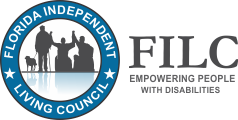Anyone can become the victim of a massive disaster like the one created by Hurricane Irma.
But it is often the elderly and people with disabilities who are most at risk.
At least eight seniors died last week in a Hollywood Hills nursing home that lost its electricity and air conditioning during Irma. Elsewhere across the state, many seniors are still endangered.
Sadly, such deaths of our elderly neighbors aren’t unusual during catastrophes.
Of the nearly 2,000 people who died during Hurricane Katrina, fully half were 75 or older.
But it’s not only the elderly who are at risk. Anyone with a disability — physical or mental — is also in peril during a catastrophe.
Facilities and individuals throughout the state struggled last week to take care of those in such precarious states.
In numerous cases, including in Jacksonville, people in wheelchairs or lacking mobility were stuck in the upper floors of their apartment buildings when power outages shut down elevators.
Some had little access to food or water or even contact with the outside world for many hours or days.
And even when the state opened special shelters to care for disabled evacuees, the services were sometimes inadequate.
At a special needs shelter in Naples, evacuees in wheelchairs and on oxygen were faced with dwindling supplies of food and water, inoperable and inaccessible toilets and power outages.
PEOPLE REMAIN AT RISK
And people’s stories of such difficulties “are not getting better with the passing days,” says Marcie Roth, CEO for the Partnership for Inclusive Disaster Strategies, a national grassroots organization that advocates for making the disabled community a priority during calamities.
Roth said there are now “thousands and thousands and thousands” of people who urgently require access to services in the aftermath of Hurricane Irma.
Locally, the staff and volunteers for the Independent Living Resource Center — which covers those living independently with disabilities in five Northeast Florida counties — have been working nonstop to ensure there is help for those who need it.
Executive Director Tyler Morris and his group have already provided hundreds of hours of services in shelters, helping with clean-up, delivering food and water, and providing equipment in the wake of Irma.
And Jim Baker, executive director of the Florida Independent Living Counsel, said that office has been working nonstop both before and after the storm.
Both Baker and Morris are now worried that some disabled or elderly people who left their homes for shelters will have no suitable homes to which they can return.
If they had lived independently in subsidized housing, as many individuals do, there may not be enough housing left in a community to accommodate everyone.
When that happens, these people may be forced to leave their hometowns and find housing elsewhere.
Or, perhaps worse, they’ll be forced into nursing homes or similar facilities where they may live diminished lives.
START PLANNING NOW
Although Baker says the state had a plan to serve the disabled and elderly during a disaster, many components proved unworkable in practice.
He said the state and members of the community must now come together to discuss what worked and what didn’t. “We’re hearing horror stories,” Baker said. “We’ve got so much work in Florida to do to be better prepared.”
Certainly, this type of preparation should occur at the state level. But it should be taking place — and with a sense of urgency — at the community level, which is where emergency services are first provided during a crisis.
Failing to have such plans in place on the local level can lead to costly lessons — as New York City discovered.
Two years after Hurricane Sandy ripped through its streets, New York City settled a federal class action lawsuit brought against it by 900,000 New Yorkers with disabilities. The judge in that case ruled that the city had not provided proper access to emergency preparedness programs and services.
The settlement led to New York City creating one of the most comprehensive disaster plans in the country.
Hurricanes and many other disasters can’t be stopped. But we can stop the heightened pain that is suffered by our most vulnerable neighbors when they occur.
Jacksonville officials should use this time of calm to revisit the city’s disaster plans. And as part of that process, they should make sure we have a viable plan for helping the disabled and elderly.
SEE ALSO
source: http://jacksonville.com

